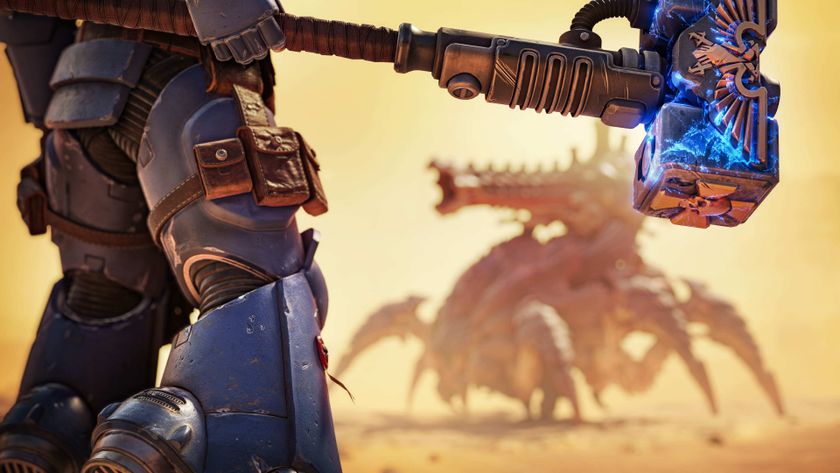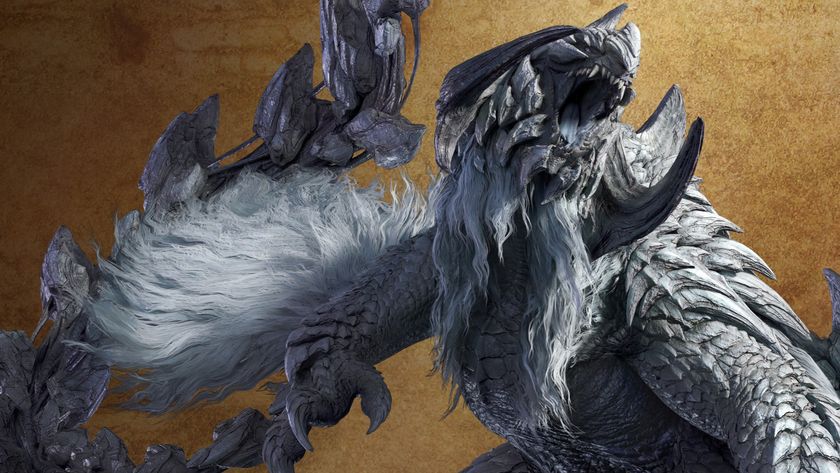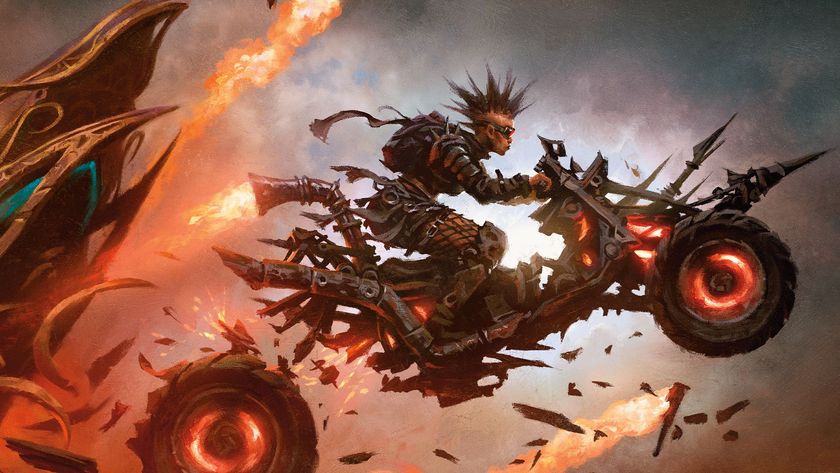Behind the music: an interview with Super Meat Boy composer Danny Baranowsky
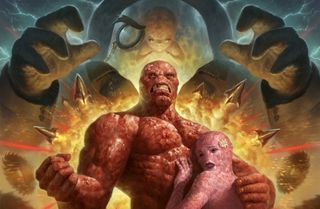
If you played Super Meat Boy, you didn't hear better music in a game last year. Last month at GDC, the game's composer Danny Baranowsky and I wandered down one of the Moscone Center's carpet corridors to chat about chiptunes, hipsters, The Shield, and music's unique function within gameplay. With Super Meat World adding juicy bonus content to SMB last week, now's the perfect time to learn more about the sounds that accompanied so many buzzsaw deaths.
Evan Lahti: You actually got your start as a game composer while you were a member of the internet's biggest videogame remix community, OC ReMix , right?
Danny Baranowsky: Yeah, I found the site 10 years ago when I first got started, and I would make CD-Rs of all of the remixes. I eventually got to be a judge on there, so I got to be a part of the quality control. Basically, starting there and starting to do remixes was kind of around the time I realized I wanted to do music for a living. I was curious if doing OC Remix would lead to a music job, but the general consensus from everyone I talked to was, "No it won't."
And in a strict sense it's true, that by doing remixes you won't get hired or anything, but you are getting into this community of people that are passionate about something that's very specific to games, so therefore they are people who are all about games in general. I kind of just viewed it as a way to get better at the production of music without having to come up with my own melodies and stuff and also just because I enjoyed doing it. Getting things out there, getting things published and hearing some people tear it apart and some people love it. It's just getting used to that cycle of releasing your ugly baby, getting it made fun of or praised, and repeat. I just did that for years. And since I was a judge I got to be a part of the quality control, so I had to just…learn how to do the impossible, which is objectively appraise something that is so subjective.
So, basically that all kind of led to me meeting Adam Atomic , who did Canabalt. He would send me games from time to time and I would send him s#*#$y stuff that would never work. But eventually he sent me this game called Gravity Hook , and there was no music—
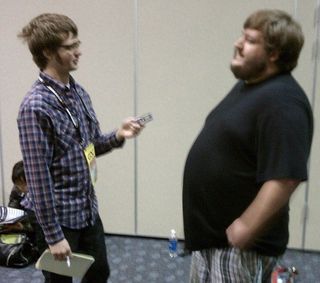
EL: —That's one of my favorites. I think it's, uh, I think it's the “B” theme that I like the most?
DB: [vocalizing the melody] Nnneh, nnneh, nnneh, nnneh, bl-neh-neh, bl-neh-neh…
The biggest gaming news, reviews and hardware deals
Keep up to date with the most important stories and the best deals, as picked by the PC Gamer team.
EL: [laughs]
DB: [laughs] …So, uh, he sends me this, and I'm like: "It's cool, it just needs music." And he said, “No, I think I'm going to go silent on this one,” and I literally told him “F$*# you, I'm writing music anyway.” And he's like, “Whatever, dude.” And 40 minutes later I sent him Track A. I tell this anecdote because this is like the moment that it all started. From there, Adam, y'know, he's told me since then that he was blown away, like he was really impressed by it. Adam had already been a pretty big player among the indies, so Edmund McMillen found out about me because of him, along with the Flash Jam guys. I got to go to TIGJam and meet him, so after a long, convoluted process, OC Remix got me to that moment where not only could I write music that was good, but music that was game music. Remixing music for eight years really forced me to understand what makes game music good.
EL: So, obviously, there are things that are different between game music and other music, but is there something that game music has to “do” for the user? Does it have to leave space for sound effects, and things like that? How would you describe that?
DB: My current theory on that is that game music should serve a similar service to film music but more…I don't want to say generic because that seems like a negative connotation…but, you know, the music in Super Meat Boy, the idea was that, OK, you're in this haunted hospital with creepy needles and all this stuff, and you have 90 seconds to loop this music, and anything that can happen on the screen during that particular track should be scored by the music.
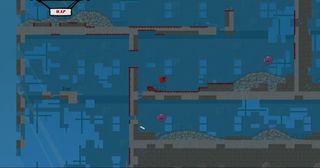
I actually started in film. While I was doing the OC Remix stuff I was trying to get into film. I never thought I would be a game music composer. I thought I was going to get into film, be the next Danny Elfman and all that stuff. In film it's very direct. It's, “Oh, this guy is crying about some bull$ so you should do some sad string stuff,” so it's very one-to-one, but in games, you're providing an atmosphere. And like you were saying, there are going to be sound effects so it can't be super, super…
EL: It can't dominate the experience.
DB: Yeah. So when I mix stuff, I usually cut off the top frequency of the spectrum because when you have a really high end… Like in club music when people have tweeters in their car, the high frequency, that's the #*$& that pierces into you and you can't escape it. Usually I roll that stuff off, because the sound effects are what should pierce out and the music should sit in more. So that's definitely a consideration.
EL: I know it's complicated—it depends on the game, it depends on the song, but how do you go about building a song, from conceptualizing it, to what tools you use, to the final product?
DB: First, I like to inundate myself—if I can play the game without music, or at least the game's art, I love looking at art and rolling it around in my head until something occurs to me. But I guess it's like any creative thing, where you just start doing it and things start happening. Sometimes the very first thing you write is awesome and inspirational and you're good to go, but sometimes you have to write for an hour before something finally sticks out to you, and you delete everything else you did until finally you're at that core idea. As far as my process, I click in everything with the mouse. I audition samples and I get an idea on how things are going to sound by pressing the keyboard but I don't record them and I do recordings that are on guitar but other than that it's all clicked in. So, it's almost…me writing music is almost like a videogame, it's almost like a puzzle game, because it's all a big grid with all these parameters and stuff. I think I definitely do it differently than a lot of other musicians who will just get on their guitar or piano and just jam and record and let it happen organically. I'm more methodical and empirical. “This group of data is superior to this one, so I'll take that one.” It's like Mario Picross.
EL: How do you feel about the state of game music today?
DB: I mean, I think it's probably like anything—there's a lot of good stuff and a lot of bad stuff.
EL: What are some of your favorites?

Evan's a hardcore FPS enthusiast who joined PC Gamer in 2008. After an era spent publishing reviews, news, and cover features, he now oversees editorial operations for PC Gamer worldwide, including setting policy, training, and editing stories written by the wider team. His most-played FPSes are CS:GO, Team Fortress 2, Team Fortress Classic, Rainbow Six Siege, and Arma 2. His first multiplayer FPS was Quake 2, played on serial LAN in his uncle's basement, the ideal conditions for instilling a lifelong fondness for fragging. Evan also leads production of the PC Gaming Show, the annual E3 showcase event dedicated to PC gaming.
Most Popular







